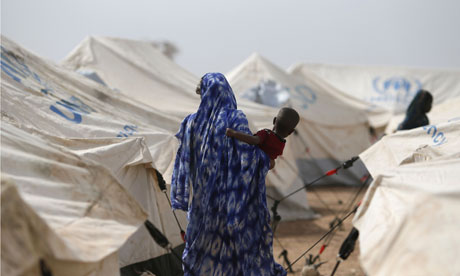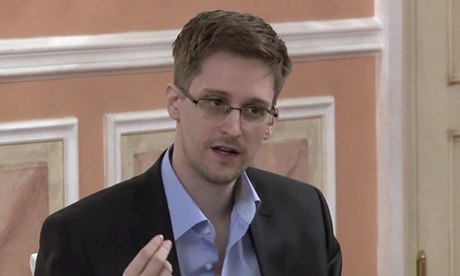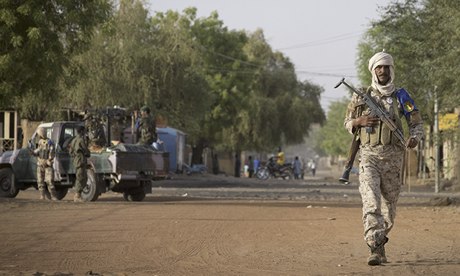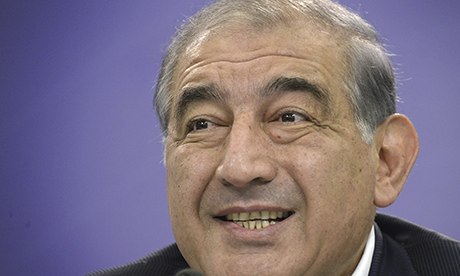Global jihad: smoke signals from Mumbai to Nairobi

© Photo: AFP
From the target choice and the sophisticated operations, to the cross border threat and the official responses, the Nairobi shopping mall siege is eerily reminiscent of the 2008 Mumbai attacks.
By Leela JACINTO reporting from Nairobi, Kenya (text)
From the target choice of landmark locations that attract internationals and local elites, to the multipronged nature of the attack involving gunfights, grenades, hostages and sieges, to the reassuring statements by authorities that the situation is under control when it’s obviously not – there are many similarities between Mumbai 2008 and Nairobi 2013.
Much of it could get lost in the smoke signals of official statements and militant boasts in the days to come.
Back in 2008, phone intercepts of the conversations between militants in the luxury Mumbai hotel and their handlers in Pakistan revealed that the terror bosses kept reminding the attackers to “pile up the carpets and mattresses” from the hotel rooms, douse them in alcohol and set them alight.
“You must start the fire now,” ordered the handler at one stage. “Nothing's going to happen until you start the fire. When people see the flames, they will start to be afraid.”
When Kenyans saw the dark, foreboding smoke billowing over the Nairobi skyline on Monday afternoon, it sent a chill down their spines.
At a press briefing in Nairobi on Monday morning, Kenyan Interior Minister Joseph Ole Lenku said militants had set fire to a stock of mattresses from one of the stores in the mall in a bid to subvert the security forces.
But as the sun set on the third night of a harrowing attack and the ominous black fumes continued to rise, there was widespread scepticism that mattresses – and not explosives – were the cause of the blaze.
‘Hybrid’ attacks from across the border
While Kenyan security forces continue their “final operations” at the Westgate mall on Tuesday and official investigations get underway, the details of the multipronged attack have yet to be established.
But there’s little doubt that the Westgate attack is a game-changer in Somali jihadist circles.
“This is a threshold event,” said Matt Bryden, director of the Nairobi-based thinktank, Sahan Research. “In Somalia, we’ve seen a steady evolution away from simple suicide operations to complex, hybrid attacks involving gunmen and suicide bombers. Now we see that they have managed to export this tactic across the border to Kenya.”
The Westgate attack – like the 2008 Mumbai attacks – originated across the border and sowed panic in the commercial hub of a politically and economically more stable neighbouring nation.
A cross-border pollination of ideas, training and resource-sharing is not new in jihadist circles whose roots go back to the mujahideen battles in the Afghanistan-Pakistan region during and after the Soviet occupation of Afghanistan.
Although the Mumbai attacks were not conducted by al Qaeda, Indian officials note that the Lashkar-e-Taiba group – which it holds responsible for the 2008 attacks – operates in Pakistan, where there are networks and links between jihadist groups.
Blame al Qaeda, not al Shabaab
In an interview with Al Jazeera on Monday, Kenyan Foreign Minister Amina Mohamed said al Qaeda was responsible for the Nairobi mall siege and that the Somali militant group al Shabaab – which has claimed responsibility for the attack – was not acting alone.
Mohamed’s distinction between the al Qaeda-affiliated al Shabaab and al Qaeda per se had analysts thumbing the depths of the complex relations between jihadist groups.
“It’s like a code-sharing or a joint operation where jihadists benefit from the experience of al Shabaab and the wider al Qaeda network,” explained Barnes. “This [the Westgate attack] is too complicated, too well organized to have been directed from Somalia purely. This will have needed a longer term level of planning that would have to be in Kenya for some time.”
Analysts eye local al Hijra group
While the al Shabaab group has been tweeting its responsibility for the Westgate attack with characteristic bombast and flair, some analysts have been examining local jihadist groups based in Kenya.
Analysts say that in the aftermath of the Westgate attacks, investigators are likely to examine the Kenyan militant group al Hijra, which has its roots in the Islamist movement of Kenya’s coastal region and in Majengo, a sprawling Nairobi slum.
Some accounts say the group also has links in Eastleigh, a Somali-dominated district of the Kenyan capital that’s also known as “Little Mogadishu”.
“It’s a non-Somali group, but its leader, Ahmed Iman Ali, traveled to Somalia in 2009 where he embedded himself with al Shabaab,” explained Bryden. “Since then, several hundred al Hijra fighters have gone to Somalia and trained and fought outside of al Shabaab.”
Nationalist and globalist splits in al Shabaab ranks
Just as the Pakistan jihadi theater includes nationalist groups like Lashkar-e-Taiba that concentrate on the more nationalist agenda of the India-Pakistan conflict over Kashmir, the Horn of Africa also has groups pursuing nationalist and globalist agendas.
Sometimes, the agendas can merge and culminate in well-planned, sophisticated attacks.
In recent months, there has been a deadly split in al Shabaab ranks between the rival factions.
The fratricidal conflict has been largely overlooked by the international community until the recent killing of the high-profile, US-born al Shabaab militant Omar Hammami, also called Abu Mansour al Amriki – or “the American” in southern Somalia earlier this month.
Before he was killed in a gunfight with rival Shabaab militants, al Amriki released messages accusing top al Shabaab leader Ahmed Abdi Godane of attempting to grab power and circumventing “the principles of Sharia” - or Islamic law”.
“Godane has won,” said Halakhe simply. “Godane leans towards making al Shabaab a transnational jihadi group. He has executed a coup against the rest.”
Forget the ICC, we have a terrorism problem
As Kenya picks through the implications of the Westgate attack, the complexities of internal schisms and external links with local jihadist groups are likely to be overlooked in favour of broad claims of al Qaeda threats, which strike the right note in Western capitals focused on international terrorism.
Ruto faces crimes against humanity charges in connection with the post-electoral violence following the disputed 2007 election.
The ICC trial has strained Kenya’s relations with Western nations and has cast a shadow on the East African nation’s standing in the international community.
“There’s a political aspect to Amina Mohamed’s statement as well,” said Barnes.
“There’s an aspect to the message of standing shoulder-to-shoulder with the international community in confronting a common problem, a common enemy. For Kenya’s leaders, this is an opportunity to restart relations with the West and say, ‘this is much bigger than what happened in 2007, don’t haul us through the courts when we are confronting our own 9/11 and 7/7,’” added Barnes, referring to the July 2007 London attacks.
There’s little doubt that the Westgate attack is indeed Kenya’s very own 9/11 or 7/7 – or 26/11 as the Mumbai attacks are referred to in India. The question now is what lessons can be learned from the carnage in the upscale Nairobi shopping mall














